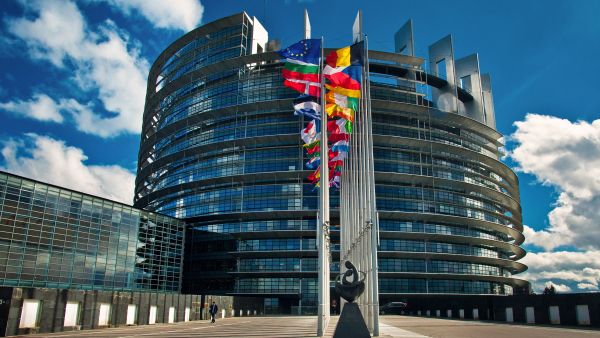The European Parliament today approved the Tinagli report on ‘Digital taxation and the ongoing reforms in the framework of the G20 and OECD (BEPS 2.0)’*, an important building block for a fair taxation system. However, a coalition of conservatives and liberals rejected an amendment introduced by the Socialists and Democrats, which called for an EU-wide 18% minimum effective tax rate.
Jonás Fernández, S&D MEP and spokesperson on economic affairs, said:
“Today the EPP have again shown their true colours: they are protecting the interests of big multinational companies. By voting down one of the most effective tools to crack down on tax avoidance - an effective minimum tax rate of 18%, they are allowing big corporations to get away with paying almost zero taxes. As digital value creation does not require a physical presence - a principle on which our current tax laws are based - a minimum tax rate will be a big step towards better dealing with the digitalisation of the economy. The EPP will have to explain to citizens why they are left to pick up the unpaid tax bill of big multinationals.”
Irene Tinagli, S&D MEP and author of the report, said:
“It’s time we bring tax law into the digital age. We want to ensure that big companies pay their fair share of tax where the value is created and where the economic activity is taking place. With easy to implement rules we want to limit tax competition and guarantee a level playing field between companies. All digital multinational companies - with an active engagement and interaction with customers and users - should be included. We call for an ambitious international tax reform. But, one thing is clear: If no agreement can be reached by the end of 2020 at OECD level, the EU must be willing to act alone. Our citizens’ call for tax justice can no longer wait.”
Note to the editor:
*International negotiations to address Tax Challenges Arising from the Digitalization of the Economy or 'BEPS 2.0' were launched at the end of January 2019 by the Inclusive Framework (over 130 countries cooperating on corporate income tax) with the support of the OECD. This work is also to be endorsed by G20 by the end of 2020 and aims at finding a unified approach to reallocate taxing rights and redefine tax presence (new nexus) in a first Pillar. A second Pillar aims at defining a minimum level of effective taxation through a global anti-base erosion tax.
The text of the amendment tabled by the S&D Group is: "Considers that any discussion at OECD/G20 towards a minimum tax rate should include reflections on a definition of the base associated with that rate; considers that any minimum effective rate should be set at a fair and sufficient level to discourage profit shifting and prevent damaging tax competition, therefore recommends a minimum effective rate of 18%, noting that the current EU average of statutory corporate income tax rates is 21,7%[1] and that some policy challenges, such as climate change, will require fiscal policy space and tools;"
[1] Op. Cit, Taxation Trends in the European Union.












